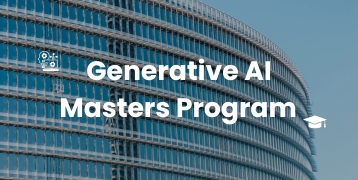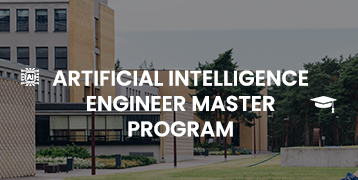
Introduction:
Are you looking for ways to improve your Oracle Project Accounting skills? If so, you’re in luck. Several great business events are coming up that will help you do just that. In this post, we’ll take a look at some of the top events for business professionals who want to learn more about Oracle Project Accounting. So, whether you’re just starting with Oracle Project Accounting or looking for ways to take your skills to the next level, these events are worth checking out. Stay tuned for more information!
Business Events in Oracle Project Accounting
Oracle Project Accounting includes several events that can occur during a business project. Some of these events are initiated by the user, while the system automatically generates others. In either case, understanding the different types of events and what they mean for your project is essential to using Oracle Project Accounting effectively.
The following are some of the most common types of events that occur in Oracle Project Accounting:
1. Project creation or activation: This event occurs when a new project is created, or an existing project is activated (that is, brought into active status). When a project is activated, all associated accounting data is also activated.
2. Budget creation: A budget defines the financial parameters. It can include the budget amount, currency, and funding source. Budgets can be created at any time during the life of a project.
3. Task creation: Tasks are the basic building blocks of projects. They represent the specific work that needs to be done to achieve the project’s objectives. Tasks can be created at any time during the life of a project.
4. Resource allocation: Resources are the people, equipment, and other assets that are used to complete tasks within a project. Resources can be allocated to tasks during the project life cycle.
5. Revenue recognition: Revenue recognition is the process of recording revenue earned from a business project. This event typically occurs after all associated tasks have been completed and the revenue has been confirmed.
6. Invoice generation: An invoice is a document that records the sale of goods or services to a customer. In Oracle Project Accounting, invoices can be generated automatically or manually.
| Learn more information from the GoLogica “Oracle Project Accounting Training“ |
7. Payment processing: Payments are used to reimburse team members for the work they have done on a project and pay for goods and services billed to the project. Payments can be processed manually or automatically.
8. Project closure: This event marks the end of a project and typically includes finalizing the budget, closing out contracts, and issuing final invoices.
Each of these events can significantly impact your project, so it is important to understand what each one means and how it affects your business. By knowing what to expect, you can plan for these events and ensure that they have as minimal an impact on your project as possible.
What are the benefits of Business Events in Oracle Project Accounting?
Oracle Project Accounting offers several benefits for recording and managing business events. By taking advantage of these benefits, you can improve your organization’s overall performance. Some of the key benefits of using Oracle Project Accounting for business events include:
Flexibility: With Oracle Project Accounting, you can easily track and report on a wide range of project-related Oracle data. This flexible reporting capability can help you make better decisions about your projects and improve your organization’s overall performance.
Accurate tracking: The comprehensive tracking features in Oracle Project Accounting ensure that all project data is captured and stored accurately. This precise tracking can help you avoid costly mistakes and ensure that all project information is available when needed.
Ease of use: Oracle Project Accounting is designed to be easy to use to get up and running quickly. This ease of use can help you save time and improve your productivity.
Flexible pricing: Oracle Project Accounting offers flexible pricing options to choose the pricing plan that best meets your needs. This flexibility can help you save money and get the most value for your investment.
These are just a few of the benefits that Oracle Project Accounting offers for business events. By taking advantage of these benefits, you can improve your organization’s performance and efficiency.
Real-time examples of Business Events in Oracle Project Accounting
Oracle Project Accounting enables you to track, manage, and report on your project costs and revenue in real time. The system records all business events, so you always have up-to-date information on your project status.
Some of the most common business events in Oracle Project Accounting include the following:
1. Receiving a new invoice from a vendor
2. Issuing a purchase order to a vendor
3. Making a payment to a vendor
4. Recording revenue from completed projects
5. Closing out a project
Each of these events can significantly impact your project’s financial status, so it’s important to be aware of them and take appropriate action as needed. Oracle Project Accounting gives you the information you need to make sound Oracle financial decisions for your business by tracking business events in real time.
Final Words:
Oracle provides several events that can be used to notify interested parties about changes or updates to the project accounting data.
-These events can be subscribed to by clients, partners, and other interested third parties to get real-time updates as projects progress.
-The types of available events include creation, update, deletion, commit, and rollback.
-Each event has its own set of fields that will provide information about the change that occurred.
Call to action for the end of the conclusion paragraph: Learn more about Oracle Events today!
Related Courses
| Course Name | Enroll Now |
|---|---|
| Oracle Cloud Technical Training | Enroll Now |
| Oracle Commerce Cloud (OCC) Training | Enroll Now |
| Oracle Configurator Training | Enroll Now |
| Oracle CPQ BML Training | Enroll Now |
| Oracle CRM Training | Enroll Now |
Author Bio:
Anji Velagana loves pursuing excellence through writing. He currently writes for Gologica.com, a global leader in providing the best online training to individuals who wish to take training on different abilities. He has experience of 5 years in the field of content writing. Contact him via LinkedIn.










